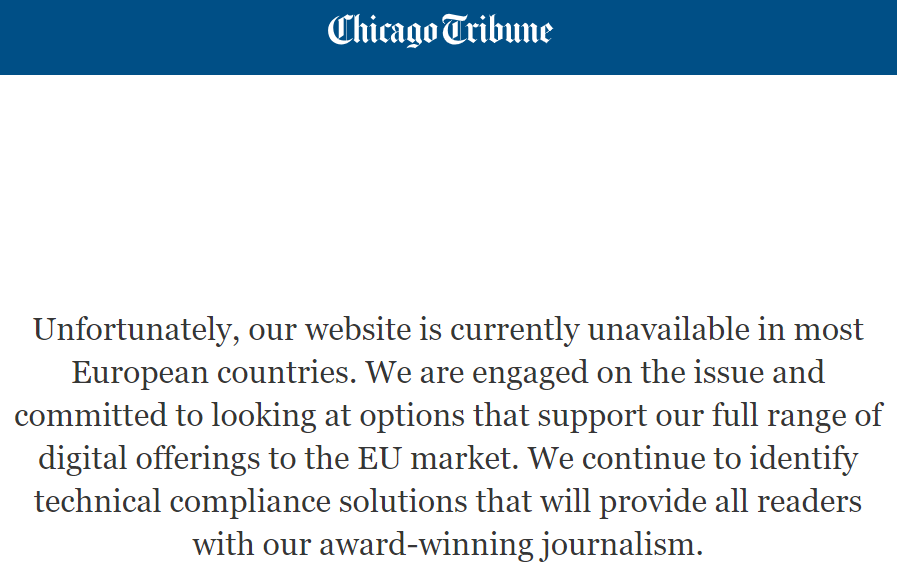
As a year since the introduction of the EU’s General Data Protection Regulation (GDPR) approaches, we revisit our popular GDPR Mythbusters series to separate the data protection facts from fiction.
Read more: GDPR training for US-based staff
EU residents locked out of US websites

The practicalities of these cross-border raids have remained a scarring question mark in the first year of GDPR. While many businesses around the world who processed European data did their best to make themselves compliant in the name of doing right by the law, others blocked Europeans from even crossing their path.
Major international news websites including the Los Angeles Times and Chicago Tribune shuttered their sites to EU IP addresses in the days after GDPR. While they claimed this would only be a temporary measure till they got up to scratch, those sites have never reopened and Europeans remain geo-segregated from swathes of the internet.
In November 2018, the UK’s Information Commissioner’s Office (ICO) ruled the way the Washington Post website tracked EU user data was incompatible with GDPR. It issued a written warning to the publisher, but neither side has taken further action.
This kind of posturing might have exposed GDPR as being meek and toothless outside of European borders – achieving little more than a strongly worded press release easily ignored by American publishers. However, a curious detail buried in an ICO report reveals more of a cloak-and-dagger operation raging beneath the public eye.
What we can learn from AIQ scandal
For all those marauding data gangsters on the other side of the Atlantic
The ICO’s enforcement notice, served without fanfare and hidden from public view, demands
Like Judy Dench’s ‘M’ in the James Bond episodes starring Pierce Brosnan, Her Majesty’s Information Commissioner Elizabeth Denham CBE is dispatching her ICO agents around the world, from snowy peaks to jungle dens, in the first act of a quiet but serious war against the international data villains.
Upcoming GDPR Mythbusters webinar
As we approach a year since GDPR came into force, we will re-visit our popular GDPR Mythbusters series with a new round of questions and answers about data protection.
During the webinar, we will be answering questions such as:
- Are huge GDPR fines a myth?
- Does anyone actually care about GDPR compliance?
- Does enforcement really go beyond EU borders?
- Does GDPR apply to me if I’m not based in the UK
? Doe s GDPR require me to appoint a DPO?















